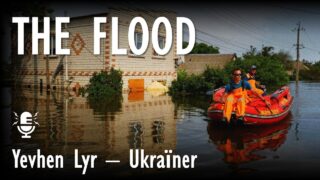
Oil spill devastates Black Sea: long-term impact expected to last over 20 years
The aftermath of a catastrophic oil spill in the Black Sea is rapidly becoming an unprecedented environmental disaster. Following the 15 December 2024, break-up of two Russian oil tankers in the Kerch Strait, over 4,300 tons of oil products spilled into the sea, forming a massive slick that now spans multiple coastlines. Experts warn that the repercussions will last for decades, with severe consequences for marine life, coastal ecosystems, and regional economies.
At the Tuzlivski Lymany National Park in Ukraine’s Odesa Oblast, oil-covered birds, including a great crested grebe, have been discovered. One of these birds has already died and will undergo laboratory tests to confirm the connection to the oil spill. Park staff also spotted an affected great cormorant but were unable to rescue it.
Marine mammals are not exempt from the crisis. In the northeastern Black Sea, an alarming rise in dolphin mortality has been reported. While experts are investigating whether the deaths are directly related to oil exposure, they also point to other potential factors, including toxic ship discharges, missile strikes, and infectious disease outbreaks, Pravda.Life sums up.
Expanding ecological threat
The oil slick, already reaching the western Crimean coast, continues to spread toward Odesa and potentially beyond to the shores of Türkiye, Georgia, and Romania. The spill’s impact is not limited to marine life. Experts caution that fish and shellfish from the affected areas may contain toxic substances, posing risks to local fisheries and food safety.
“This is the largest oil spill in Black Sea history in terms of both volume and area affected,” said Dr. Pavlo Goldin of the Schmalhausen Institute of Zoology at the National Academy of Sciences of Ukraine.
He estimates that the environmental damage will persist for at least 20–30 years, based on previous disasters like the 2007 Kerch Strait spill, whose effects are still visible today.
Challenges of сleanup
Cleaning up the spill presents a daunting challenge. Heavy oil products like mazut are notoriously difficult to remove and can severely damage coastlines if they reach land. Paul Johnston, a research leader at the University of Exeter, emphasized the long-term consequences of such spills, noting that even small amounts of residual oil can persist in marine sediments for years.
Environmental organizations, including Greenpeace Ukraine, have called for immediate action to mitigate further contamination. However, experts warn that the complexity of the spill and the ongoing war in the region complicate response efforts.
Implications
Beyond the ecological devastation, the spill threatens significant economic consequences, particularly for the fishing industry. Toxic contamination of marine life could lead to reduced fish stocks and diminished seafood exports from affected areas.
“This is not just an environmental crisis; it’s an economic one,” Dr. Goldin remarked, highlighting the spill’s potential impact on livelihoods and regional stability.
The Black Sea oil spill has further exacerbated concerns about ongoing environmental damage caused by Russian presence in the region. Russian-controlled platforms, particularly in Crimea, have faced repeated incidents of fire and environmental contamination, as reported by satellite imagery. These incidents, coupled with increased naval activities and attacks on coastal infrastructure, have created a hazardous environment for marine ecosystems.
Legal and environmental disputes surrounding the Black Sea have gained international attention, as Ukraine continues to contest Russia’s maritime actions. The spill has highlighted the vulnerabilities of the Black Sea’s shared waters, with experts cautioning that the contamination could soon affect Turkish, Georgian, and Romanian coastlines.














